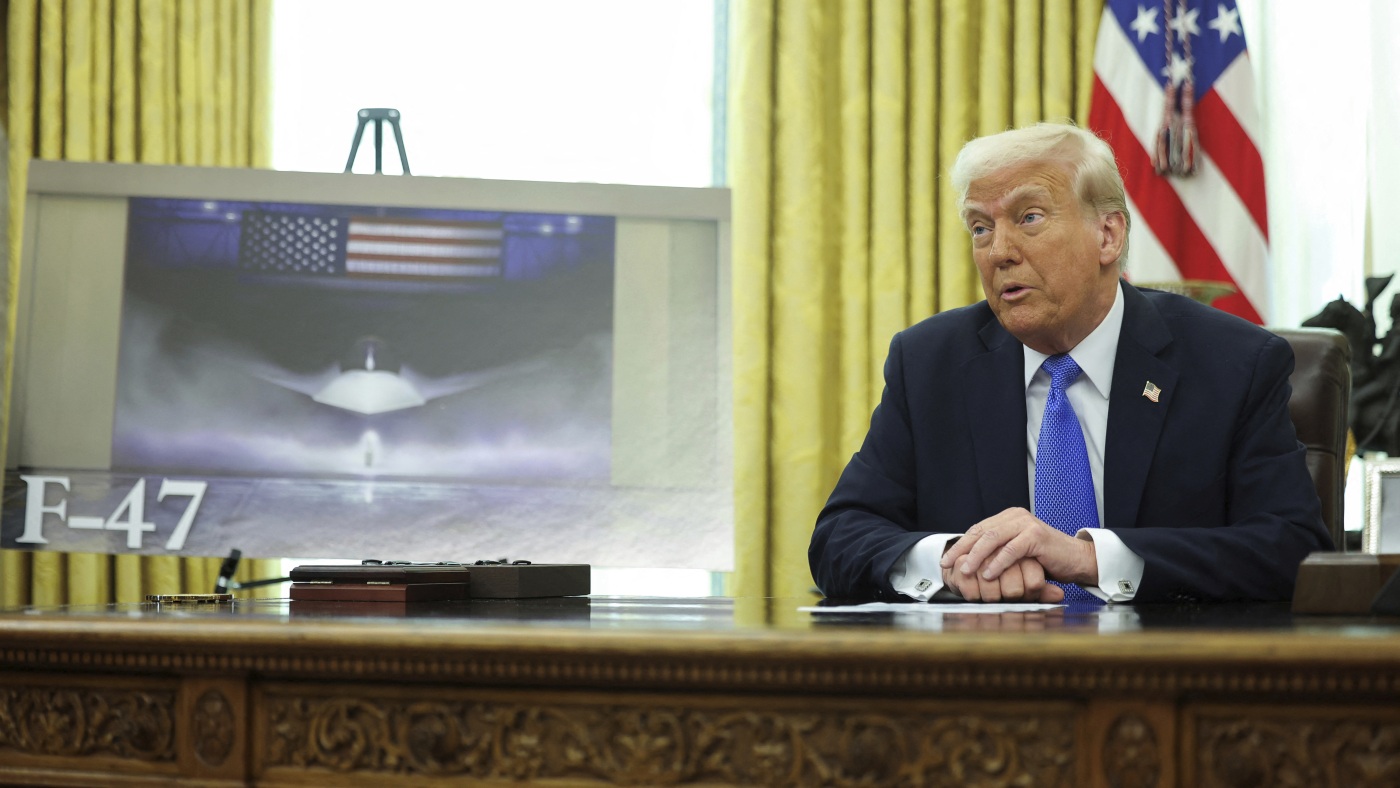Boeing Secures Major Contract for U.S. Air Force’s Next-Gen Fighter Jets
The announcement of Boeing’s new contract to build the next generation of U.S. Air Force fighter jets marks a significant milestone for the aerospace giant. These advanced aircraft, dubbed the F-47, promise to enhance America’s aerial combat capabilities.
President Trump, addressing the media from the Oval Office, declared, “They will have unprecedented power,” emphasizing that “America’s enemies will never see [them] coming.” This statement highlights the stealth and advanced features expected from the F-47, which is part of the Next Generation Air Dominance (NGAD) initiative.
While exact details of the F-47 remain scarce, it’s known that this sixth-generation fighter will be a major leap in technology, potentially being “virtually unseeable” on radar. Trump, the 47th U.S. president, mentioned the jet’s name as a nod to his presidency, calling it a “beautiful number.”
The financial aspects of the deal are not entirely clear, but early estimates suggest that development costs could exceed $20 billion, with the total project potentially reaching hundreds of billions, as reported by The Associated Press and The War Zone.
The contract is a crucial win for Boeing, which has faced several challenges in recent years, including issues with the 737 Max and the KC-46 refueling tanker program. The new jets will be manufactured at Boeing’s facility in St. Louis, as confirmed by St. Louis Public Radio.
The stock market responded swiftly to the news, with Boeing’s shares rising by about 5%, while its main competitor, Lockheed Martin, saw a nearly 7% drop. Lockheed Martin’s F-35 jets have been criticized by figures such as Elon Musk, who referred to them as “expensive & complex jack of all trades, master of none,” sparking debate about the future of military aviation.
Musk has advocated for increased investment in drone technology over traditional stealth jets, as noted in a report by Business Insider. In response, Secretary of Defense Pete Hegseth assured that the F-47 would reinforce America’s position as a leader in military aviation, stating it “sends a very clear, direct message to our allies that we’re not going anywhere.”
This article was originally written by www.npr.org






